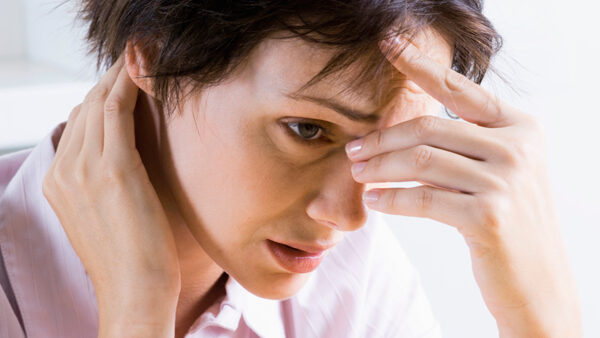
Coffee is one of the best ways to improve mood and reduce stress. It can also help focus and concentration when you need to be productive at work or school. Some people find it difficult to drink coffee first thing in the morning, but it can help you start your day and set you on track for success.
It also makes a great pick-me-up snack when you are craving something sweet or want to take your mind off things.
The following guide will help you get through your jitters with coffee.
Best Coffee for Jitters: Smoother Options for Sensitive Palates
Coffee jitter is a feeling of nervousness and anxiety after you drink coffee. Many factors, such as caffeine, sugar, or drinking coffee itself, can cause coffee jitters. Some people have a sensitivity to caffeine consumption that causes this type of reaction in their bodies.
Caffeine in coffee can cause jitters and anxiety, but it can also reduce symptoms of depression and other mental health problems. A person’s sensitivity to caffeine, how much they drink, and how long they drink it affects their mood.
Here Are Our Top Picks For When You’re Feeling Jittery

Many people use coffee to help them stay up. This can be a problem for some people with caffeine sensitivity and pre-existing anxiety issues.
If you suffer from these conditions, the best thing to do is find a coffee with lower-than-average caffeine levels.
Some of the favourite coffee for when you are feeling jittery is included in this article.
- Iced coffee: When you feel anxious, this is the perfect drink because it has a bit of caffeine, but not too much. Plus, iced coffees can be quite refreshing on a hot day!
- Decaffeinated coffee: The jitters associated with caffeine are also reduced when people switch to the decaf version of their favourite drink. With the new caffeine-free coffee trend, people are now on their way to finding out what is actually in their cup of decaf coffee.
- Dark roast: This coffee has a regular amount of caffeine and nutrients that can help reduce anxiety and improve focus.
- Light roast: You can also avoid jitters by choosing a light roast or blending regular drip or espresso with milk instead of using creamers and syrups in your drink.
What Are The Natural Benefits Of Coffee For Your Body?
Coffee is a beverage that people around the world enjoy. It has been used as a natural remedy for various ailments and health problems.
Coffee has been used in the past to treat many diseases, such as liver cirrhosis, diabetes, and even cancer. It also contains antioxidants that help in fighting free radicals.
Coffee can be beneficial to your body in various ways. Some of these benefits are:
- Coffee can help you stay alert during the day.
- Coffee can help with weight loss.
- Coffee can reduce the risk of developing certain diseases.
Too Much Coffee Can Have Negative Effects
The negative effects of too much coffee are numerous. It can cause insomnia, anxiety, and headaches. It can also lead to heartburn and stomach issues. Caffeine has many effects on the body, but most people do not know them.
Caffeine is a stimulant that affects the central nervous system in several ways. The body may become overstimulated and experience physical symptoms with too much coffee.
- Too much coffee is often associated with heartburn, stomach issues, and anxiety. Heartburn is when stomach acid rises up from the stomach, which causes an uncomfortable burning sensation in the chest.
- Stomach issues are common if people drink coffee repeatedly without a break and have proper hydration levels from those drinks. The stomach may be cramping and less than satisfied because it is not getting enough nutrients while it grows in size due to excess liquid.
- Anxiety is a psychological symptom that the over-consumption of caffeine or certain medications may cause. Caffeine does not only cause physical and central nervous system effects but also has a significant effect on the cardiovascular system because caffeine blocks adenosine, a neurotransmitter in the brain that signals drowsiness.
- Too much caffeine can lead to palpitations in those with underlying heart conditions such as mitral valve prolapse and chronic atrial fibrillation.
How Can People Minimize Their Risk Of Having A Jittery Day?
Many people are concerned about their mental health, especially when it comes to anxiety, a common symptom for people with jittery days because of coffee.
Some tips for staying calm on a jittery day are also included in this article:
- Meditate: Meditation can be a great way to reduce anxiety. It can help you feel more relaxed and in control.
- Taking breaks throughout the day can help you avoid feeling overwhelmed by your workload.
- Get enough sleep: Getting enough sleep can help you feel less anxious and improve your mood and energy levels.
- Practice deep breathing exercises: Deep breathing exercises like the 4-7-8 technique are an easy way to make yourself feel more relaxed and in control of your emotions.
Top 8 Ways To Use Coffee For Anxiety Relief

Coffee can help you relax and relieve anxiety. It has been a popular beverage for many years. With this article, we will be discussing the top 8 ways to use coffee for anxiety relief.
- Drink coffee before or after an event that causes anxiety
- Take a break from work and drink a cup of coffee
- Drink green tea instead of coffee if you want to reduce your caffeine intake
- Add sugar or milk to your coffee if it is too strong for you
- Make your own iced or hot chai tea latte with milk, honey, and cinnamon sticks
- Add vanilla extract to your hot or cold brew in order to sweeten it up
- Make a warm cup of French press with whole milk
Conclusion:
Some coffees can be a great way to calm your nerves and relieve the jitters. It can also be consumed in a number of ways – hot or cold, with milk or sugar or without. The good news is that most of these drinks will give you a boost of caffeine, which can have a number of benefits, such as an increased ability to focus and an improved mood. We hope you learned something new about coffee and its different varieties.
Was this article helpful? Let us know in the comments.
FAQS
Why does coffee make me jittery sometimes?
Overdosing on caffeine causes adrenaline to accumulate and have nowhere to go, which further causes palpitations and jitters. As a result of caffeine’s ability to mimic the effects of stress (adrenaline, high blood pressure, sweat, and jitters), many people experience anxiety and overstimulation.
Can a lack of caffeine cause jitters?
One cup of coffee can make someone with low caffeine tolerance feel jittery and uneasy. Anxiety can be a side effect of caffeine use, but it can also be a side effect of caffeine withdrawal.
How long can caffeine jitters last?
The majority of these effects start to manifest an hour after caffeine ingestion. Caffeine enters the bloodstream just five minutes after consumption! It may take several hours for the jittery symptoms to subside.




